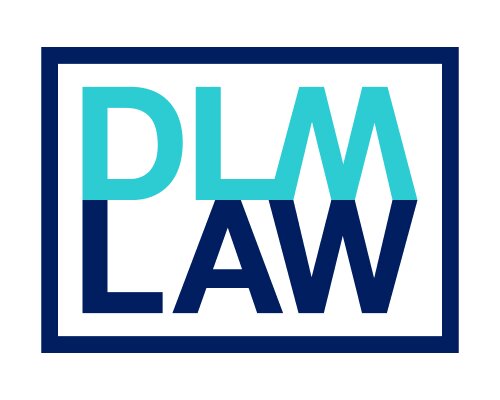Best Administrative Lawyers in Kansas
Share your needs with us, get contacted by law firms.
Free. Takes 2 min.
Or refine your search by selecting a city:
List of the best lawyers in Kansas, United States
About Administrative Law in Kansas, United States
Administrative law in Kansas governs the actions and decisions of state and local government agencies. It defines the legal relationship between individuals, businesses, and public agencies, ensuring that government actions comply with the law and respect citizens' rights. Administrative law covers a wide range of legal procedures, including licensing, regulation, rulemaking, enforcement actions, and administrative hearings. In Kansas, administrative decisions can affect professional licenses, business permits, public benefits, and other matters that directly impact residents and organizations.
Why You May Need a Lawyer
People in Kansas may need an administrative law attorney for various reasons. Here are some common situations:
- Challenging the denial, suspension, or revocation of a professional license or permit
- Responding to disciplinary actions by a licensing board or government agency
- Dealing with disputes over public benefits such as Medicaid, unemployment insurance, or workers' compensation
- Navigating compliance with complex regulatory requirements
- Advocating during administrative hearings or appeals
- Seeking judicial review after unfavorable administrative decisions
- Consulting on how administrative regulations affect a business or personal activity
A lawyer can help interpret complex regulations, guide you through administrative processes, and advocate on your behalf to protect your interests.
Local Laws Overview
Administrative law in Kansas operates under both state and federal frameworks. Key aspects include:
- Kansas Administrative Procedure Act (KAPA): Sets out the rules and standards for administrative hearings and agency decisions within Kansas.
- Kansas Judicial Review Act (KJRA): Provides the process for appealing agency decisions to district courts.
- Agency-Specific Rules: Different government agencies have their own procedures and regulatory requirements, such as the Kansas Department of Health and Environment, the Kansas Board of Nursing, and the Kansas Department of Revenue.
- Open Records and Meetings: The Kansas Open Records Act (KORA) and the Kansas Open Meetings Act (KOMA) ensure transparency in government operations.
- Federal Oversight: In many cases, federal laws and regulations interact with state administrative processes, especially in areas like environmental protection, education, and healthcare.
Understanding the specific rules and timelines for hearings, appeals, and compliance is essential when dealing with administrative matters in Kansas.
Frequently Asked Questions
What is an administrative hearing?
An administrative hearing is a formal process where individuals or businesses can dispute government agency decisions, such as denial of a license or benefit. Hearings are usually less formal than court trials, but follow structured procedures.
How do I appeal a decision made by a Kansas state agency?
You typically need to file an appeal or request a hearing within a specific time frame set by the agency or under the Kansas Administrative Procedure Act. If you disagree with the final agency order, you may seek judicial review in the district court.
Do I need a lawyer for an administrative hearing?
While you are not always required to have a lawyer, legal representation can significantly improve your chances of success and ensure your rights are protected during the process.
How long do I have to file an appeal?
Deadlines vary by agency and type of case. It is important to check specific instructions in the agency’s notice or contact the agency as soon as possible to avoid missing important deadlines.
Can administrative agencies change their rules?
Yes, agencies can propose, adopt, or amend regulations. Rulemaking usually involves notice to the public and an opportunity to comment.
What is judicial review in administrative cases?
Judicial review is a process where a court examines an agency's decision to ensure it was legal and based on proper evidence. Not all administrative decisions are eligible for judicial review.
What if I believe an agency acted unfairly?
If you believe an agency acted outside its authority or failed to follow proper procedures, you may challenge its actions through an administrative appeal or in court.
Are administrative hearings always public?
Many hearings are public, but some, especially those involving sensitive personal information, may be closed or have limited access.
How are administrative law judges selected in Kansas?
Administrative law judges are typically appointed by the agency they serve, following specific qualifications and standards required by Kansas law.
What happens if I do not attend my administrative hearing?
Failing to attend may result in your case being dismissed or decided against you by default. Always notify the agency if you have a conflict or cannot appear.
Additional Resources
If you need more information about administrative legal matters in Kansas, the following resources may be helpful:
- Kansas Office of Administrative Hearings
- Kansas Judicial Branch (for information on judicial review and court appeals)
- Kansas Department of Health and Environment (for professional licensing and regulatory matters)
- Kansas Department of Revenue (for tax and licensing issues)
- Kansas Bar Association (for attorney referrals)
- Kansas Legal Services (provides legal aid in civil matters, including administrative law)
Next Steps
If you believe you have an administrative law issue in Kansas, consider the following steps:
- Review all notices or correspondence from the government agency involved
- Pay close attention to deadlines for responses, appeals, or hearings
- Gather relevant records, permits, certificates, or other documentation
- Contact the agency to clarify procedures if you are unsure about next steps
- Consult with an attorney specializing in administrative law to assess your options and strategize your response
- Consider reaching out to legal aid organizations if cost is a concern
Prompt action and informed guidance are critical when dealing with administrative matters in Kansas. If in doubt, consult a qualified attorney for dedicated legal help.
Lawzana helps you find the best lawyers and law firms in Kansas through a curated and pre-screened list of qualified legal professionals. Our platform offers rankings and detailed profiles of attorneys and law firms, allowing you to compare based on practice areas, including Administrative, experience, and client feedback.
Each profile includes a description of the firm's areas of practice, client reviews, team members and partners, year of establishment, spoken languages, office locations, contact information, social media presence, and any published articles or resources. Most firms on our platform speak English and are experienced in both local and international legal matters.
Get a quote from top-rated law firms in Kansas, United States — quickly, securely, and without unnecessary hassle.
Disclaimer:
The information provided on this page is for general informational purposes only and does not constitute legal advice. While we strive to ensure the accuracy and relevance of the content, legal information may change over time, and interpretations of the law can vary. You should always consult with a qualified legal professional for advice specific to your situation.
We disclaim all liability for actions taken or not taken based on the content of this page. If you believe any information is incorrect or outdated, please contact us, and we will review and update it where appropriate.
Browse administrative law firms by city in Kansas
Refine your search by selecting a city.














